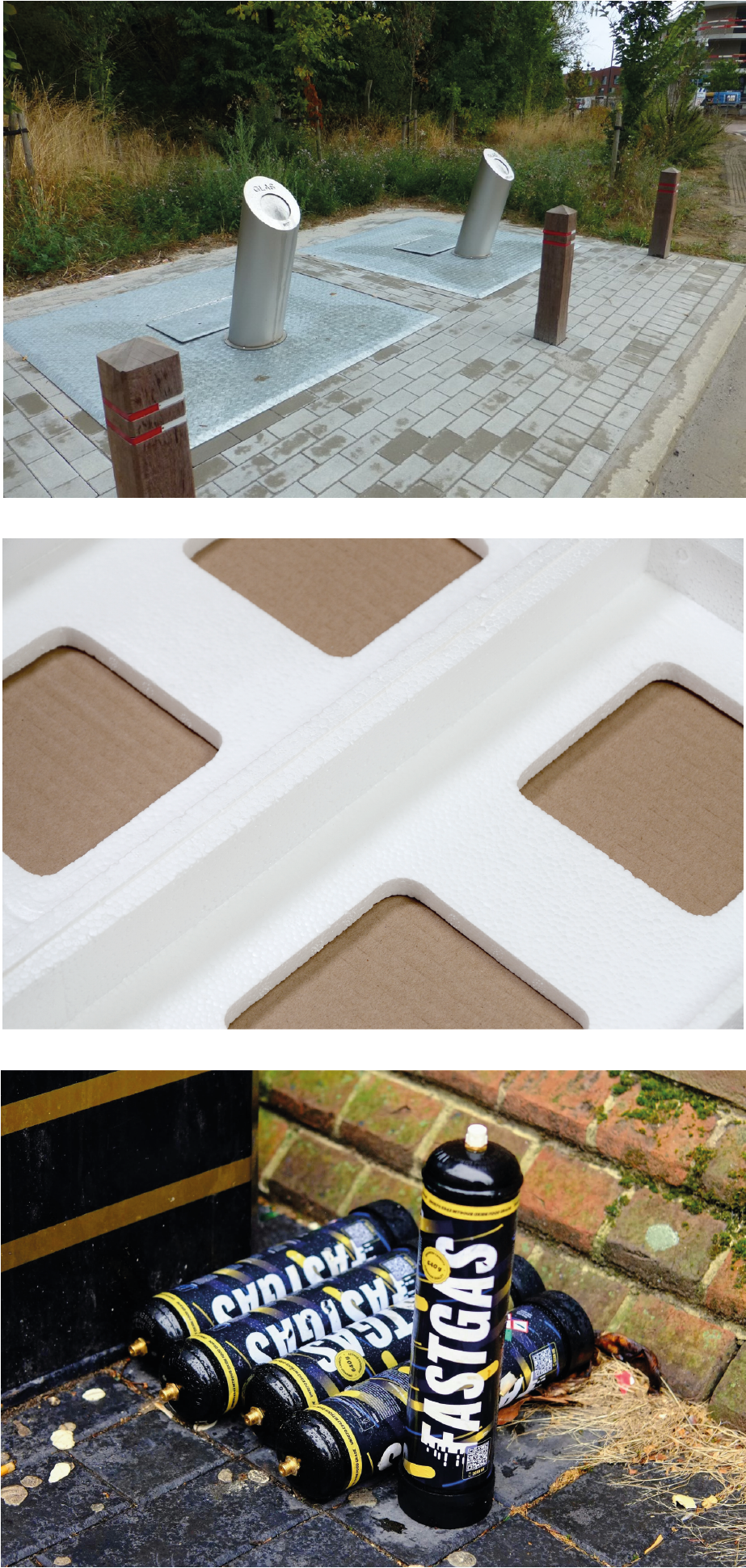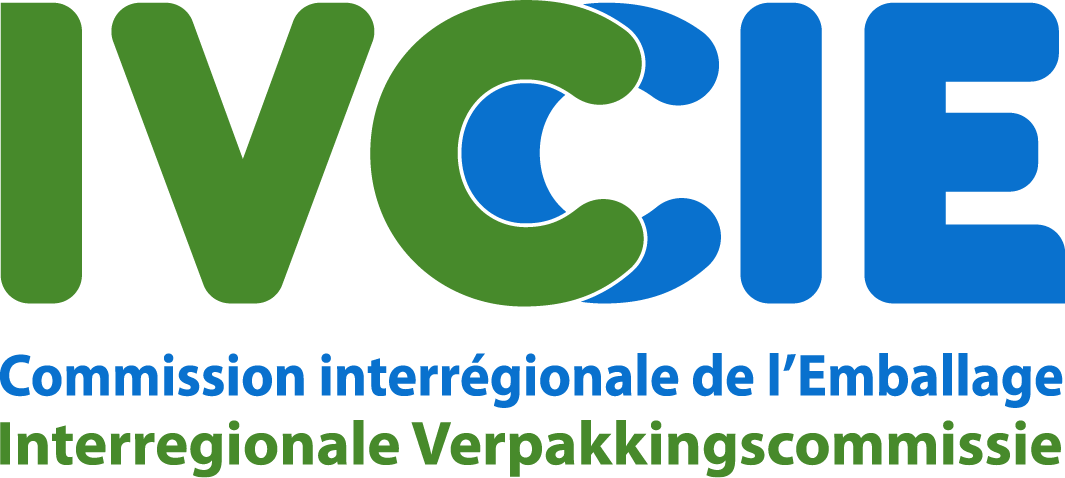2.1. New accreditation
Baseline scenarios for the collection of household packaging waste (article 6)
The collection scenarios in article 6, which are to be paid for based on the full cost, are in line with the previous accreditation, but textual improvements and clarifications have been made, such as the inclusion of local “bring” systems in the body of article 6 (see below) and in terms of the principles that must be complied with:
the addition of the principle that, if, in the past, Fost Plus has accepted a particular collection scenario as being appropriate for a municipality or intermunicipality, it cannot subsequently go back on this decision;
clarification of the possibility of increasing the frequency of collection in tourist areas during the tourist season.
Collection and operating costs at recycling centres
For glass and paper/cardboard, payment for collection at recycling centres is still included in article 6 and is therefore one of the baseline scenarios for the collection of household packaging waste.
As the collection of PMD at recycling centres is considered supplementary to the baseline scenarios, it is no longer included in article 6. Article 8(3) stipulates, however, that Fost Plus must continue to pay the costs of collecting PMD at recycling centres. So Fost Plus’s payments actually remain the same.
Besides collection costs, article 7 also provides for the payment of recycling centres’ operating costs (running and other costs), which are now considerably higher and vary by waste stream. The payment consists of the following items:
a flat rate of EUR 2,000 per year per recycling centre where “Klein Gevaarlijk Afval” (KGA, household hazardous waste), “Déchets Spéciaux des Ménages” (DSM, special household waste) and “Déchets Chimiques Ménagers/Huishoudelijk Chemisch Afval” (DCM/HCA, household chemical waste) are collected;
a flat rate of EUR 1,000 per year per recycling centre where EPS and cork are collected;
EUR 30 per tonne of paper/cardboard collected at the recycling centres;
EUR 104 per tonne of glass collected at the recycling centres.
Payment of the costs of KGA/DSM/DCM-HCA collected
Article 18 retains payment of the costs of selective collection and treatment of household packaging waste that is contaminated with or has contained hazardous substances, but simplifies the payment mechanism. The operator responsible for waste treatment will invoice Fost Plus directly for the share of household packaging billed to the latter. The Joint Committee is responsible for determining the proportions by weight of household packaging in the KGA/DSM/DCM-HCA streams.
“Other” waste streams collected at recycling centres
In the case of EPS materials and cork, the accreditation allows Fost Plus to organise collection at recycling centres and sale, subject to the agreement of the municipality or intermunicipality.
For the remaining “other” streams collected by intermunicipalities at recycling centres, article 8 still provides for a special fixed payment for collection and treatment. This payment is now differentiated according to recycling destination in order to encourage more local recycling of these streams:
EUR 300 per tonne of household packaging waste recycled in the EU;
EUR 30 per tonne of household packaging waste recycled outside the EU.
Method for calculating recycling targets
To put an end to any discussions on this subject, the accreditation clearly stipulates that the quantities recycled must be determined in accordance with the European calculation method and that Fost Plus must continue to guarantee recycling of the highest possible quality.
Sorting message
The “sorting message” working group, which was set up under the previous accreditation, has been maintained. Its task will still be to evaluate the sorting message for the general public.
“Materials” working group
The “materials” working group, which was also set up under the previous accreditation, has been maintained. Its task will still be to identify packaging that should be subject to a strongly deterrent rate (amounting to at least twice the highest rate for packaging that is selectively collected for recycling), because it hinders selective collection and/or sorting or because it cannot be recycled.
“Ad hoc” working group for self-management costs
Under the terms of this accreditation, a new “ad hoc” working group is to be set up. Its task will be to develop a model for calculating the cost of self-management. This working group will be made up of Fost Plus and the municipalities or intermunicipalities that use their own staff and equipment (i.e. self-manage).
Allocation keys for paper/cardboard
Paper/cardboard is a mixed stream consisting of packaging waste and other waste.
Based on the studies the IRPC carried out during the previous accreditation period, the allocation keys for paper/cardboard set out in article 11 have been revised. Fost Plus now takes 53% (instead of 32%) of the tonnages into account and pays 60% (instead of 44%) of the cost of collecting the tonnages of mixed paper/cardboard that are collected selectively.

Local “bring” systems
Collection by means of local “bring” systems, replacing kerbside collection, is included in article 6 and is therefore now one of the baseline scenarios. These replacement systems are paid for on the basis of the full cost, capped at twice the reference cost of kerbside collection.
This payment does not apply to supplementary local “bring” systems. Collection by this means is paid for according to the rule set out in article 8(2) for “additional scenarios”, i.e. based on the variable part of the reference cost for the material collected (40% of the costs, expressed in EUR/tonne).
Payment for collection by means of replacement local “bring” systems is supplemented, in certain very specific cases, by payment for the investment costs of these systems, within the framework of an overall budget (see below).
within the framework of an overall budget (see below).
Overall budget for investments in collection containers and infrastructure
Article 13(1) introduces an overall budget for investment in the purchase of collection containers and infrastructure and to optimise glass collection. More specifically, this article now stipulates that Fost Plus can pay the following within this budget:
65% of the costs of purchasing and installing underground bottle banks;
the costs of actions relating to:
- monthly kerbside collection of glass;
- improving the cleanliness of bottle bank sites by means of camera surveillance and/or additional cleaning of the sites, including removing litter;
- monitoring collection by installing bottle bank sensors;
50% of the costs of purchasing and installing containers above or below ground for paper/cardboard and PMD to replace kerbside collection in certain specific areas; in practice, these are areas where kerbside collection is not recommended;
60% of the purchase price of individual containers for kerbside collection of paper/cardboard (preferably fitted with a microchip to track how many times they are emptied).
For each municipality or intermunicipality, this budget takes the form of a contribution of maximum EUR 0.39 per inhabitant per year.
Alternative collection of single-use gas cylinders
Nitrous oxide cylinders have caused serious public cleanliness and safety problems in recent years (especially from explosions in waste incinerators). Article 18(2) has been added to enable Fost Plus to contribute to resolving this issue. To this end, Fost Plus will have to draw up an action plan.
Project monitoring costs
The payment covering the project monitoring costs incurred by municipalities or intermunicipalities has been revised as a result of the PMD sorting message being simplified.
This payment, made by Fost Plus, amounts to EUR 0.63 per inhabitant per year. Intermunicipalities with a low population density receive extra.
Local communication costs
Payment of local communication costs has been maintained, but an additional payment has been introduced to take into account the higher costs associated with the official bilingual status of the Brussels-Capital Region.
Purchase and distribution of blue bags
With the agreement of the municipalities or intermunicipalities, Fost Plus may purchase and distribute standardised blue bags.
Sorting bonus for PMD
A residue bonus for sorting PMD has once again been included in the new accreditation. This financial incentive will be granted to municipalities or intermunicipalities whose PMD residue percentage is low (below 12%), with a linear increase in line with the reduction in the residue percentage.
Prevention and reuse
The prevention and reuse strategy has been stepped up.
By 15 December at the latest, Fost Plus must propose two ambitious action programmes for the prevention of packaging waste among its members: one on avoiding and reducing packaging and the other on eco-design.
The action programme on avoiding and reducing packaging will aim to achieve an absolute reduction in the quantity of one-way packaging placed on the market by at least 5% by the end of the accreditation period.
The eco-design action programme will aim to promote the eco-design and circularity of packaging.
Fost Plus must also propose a third action programme, by 15 December, to encourage its members to use reusable packaging. This action programme will seek to increase the market share of reusable packaging by at least 5% by the end of the accreditation period.
Each year, Fost Plus should invest at least 2% of its total budget for 2024 in the implementation of the action programme on avoiding and reducing packaging and the reuse action programme.
“Overpackaging” contact point
The way the “overpackaging” contact point works needs to be improved, as does the feedback to consumers on the action taken. For example, Fost Plus should be able to guarantee a response within a given timeframe.
Out-of-home strategy
The out-of-home strategy will be clarified and enhanced by a clear operational framework in the form of an action plan, which will include monitoring and reporting provisions and will need to be updated annually.
In this context, Fost Plus must propose an “out-of-home” action plan by 15 December 2024 at the latest, clearly differentiating between the following categories (and subcategories):
non-household PMD collection: collection from the workplace, collection from public waste bins (selective and non-selective), other out-of-home projects (events, sports centres, catering establishments, tourist attractions, etc.);
Category B
household PMD collection (from households, schools, companies, other sources;
other materials: paper/cardboard and glass.
Specific, ambitious collection targets will have to be set for category A and its subcategories, while continuing to focus on prevention and reuse. Fost Plus should clearly indicate how the targets will be achieved, as well as the planned budgets. More specifically:
for Category A as a whole, the objective will be to increase collection by at least 25% by 2028, compared with 2024;
for “collection from the workplace”, a target will be set to increase the percentage of companies that collect PMD, with the aim of halving the amount of PMD waste that still ends up in industrial residual waste and is not sorted;
for “collection from public waste bins”, a target will be set for the installation of selective public waste bins, and another for additional sorting of the contents of selective and non-selective public waste bins. The aim is that by the end of the accreditation period, all waste bins in public areas will either be selective or their contents will undergo additional sorting.
All three categories (A, B and C) will have to be monitored.
It should also be noted that Fost Plus may include pilot projects in the out-of-home action plan.
Deposit return scheme
The accreditation includes elements proposed by the IRPC to support the regional governments’ policy decision-making process on the possible introduction of deposits for one-way plastic and metal beverage packaging. They are intended to inform the governments and provide them with a number of conditions that the IRPC believes should be taken into account.
Cooperation Agreement on EPR for certain waste streams and litter
The accreditation includes a procedure for amending the accreditation in the event of adoption of the future Cooperation Agreement concerning the framework for EPR for certain waste streams and for litter.
The text of the new Fost Plus accreditation can be consulted on our website.
